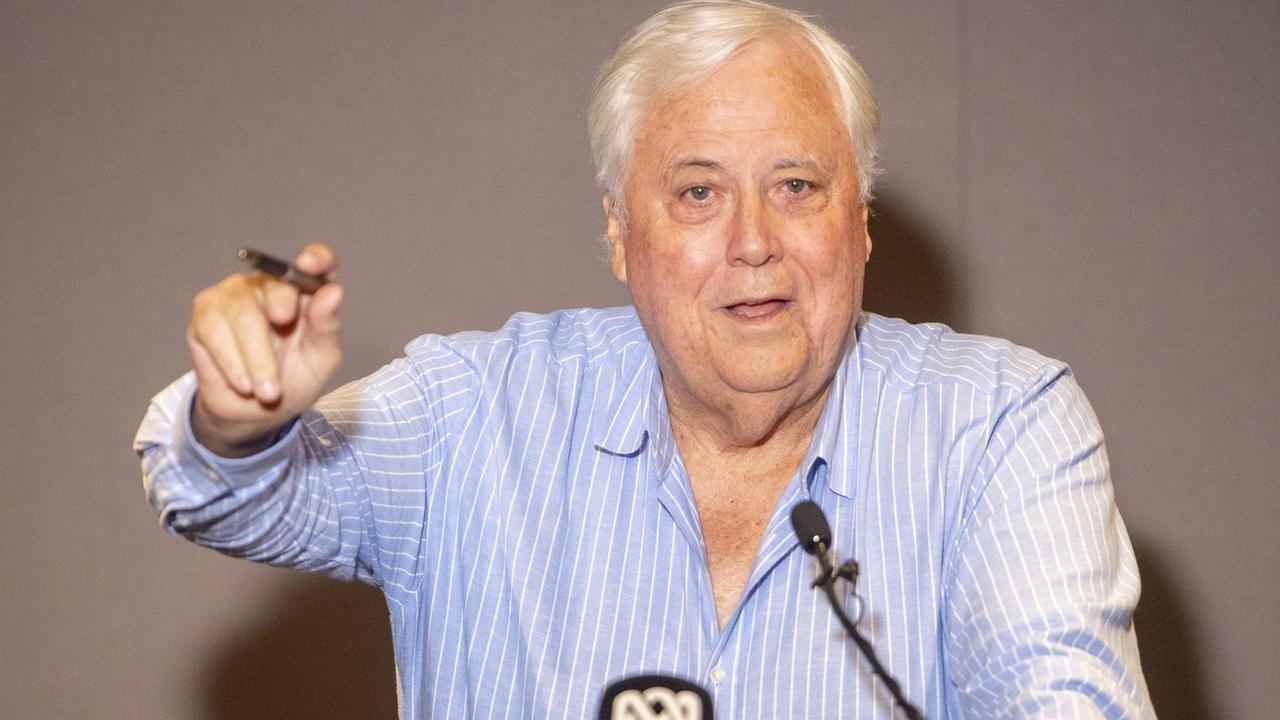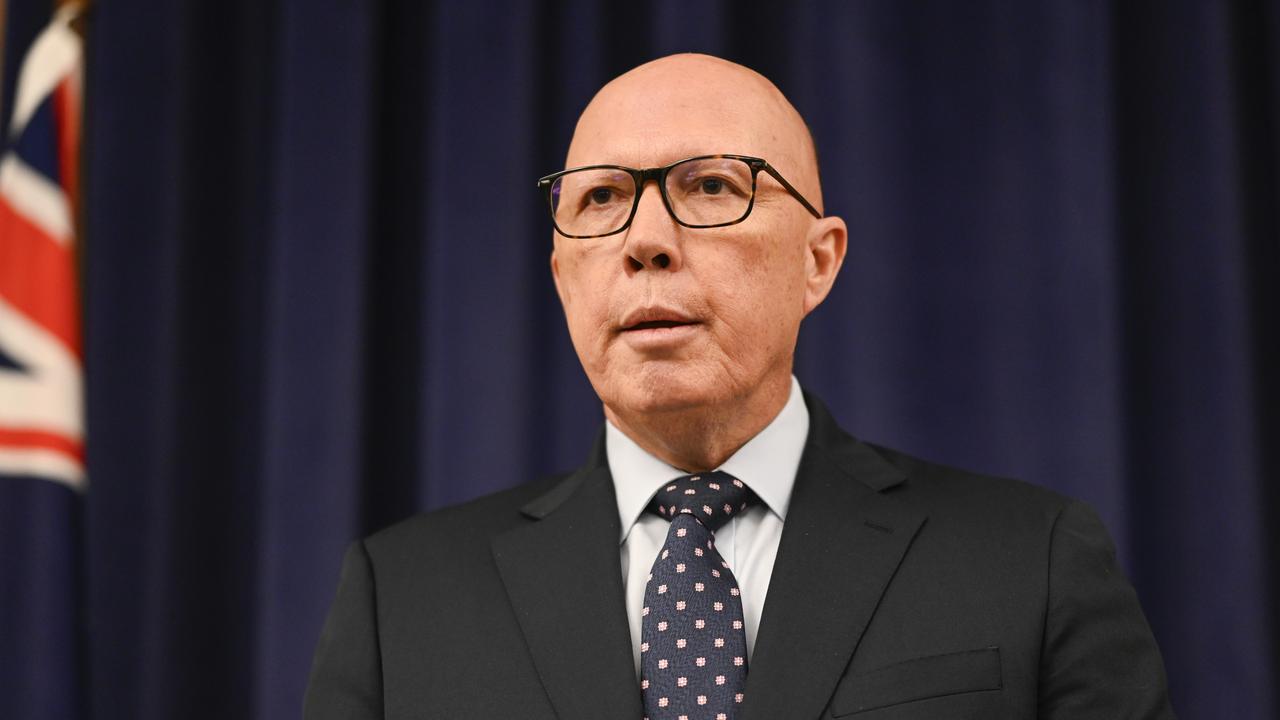Labor’s electric car target out of reach
The majority of green vehicles included in Labor’s 2030 target are out of reach for Australian consumers, the car industry’s peak body says.

Federal Election
Don't miss out on the headlines from Federal Election. Followed categories will be added to My News.
Electric vehicle sales will stall without government incentives of thousands of dollars per vehicle, the car industry’s peak body says.
The ALP made headlines ahead of May’s election with a shock policy requiring half of new cars sold to be electric vehicles by 2030.
But Federal Chamber of Automotive Industries spokeswoman Lenore Fletcher said the target would be hard to reach without significant cash subsidies for consumers.
“I don’t believe these targets are possible without incentivisation,” she said.
“We’ve learned from watching overseas markets what process is necessary to implement new technology.”
The claim is supported by Kia Australia boss Damien Meredith, who said in 2018 Australia might struggle to get the supply of cars needed to meet Labor’s target.
“People in headquarters around the world look at what’s happening in western Europe or North America and say, ‘OK well they are putting these things into place, we’ll put the cars there’,” he said.
MORE ELECTION NEWS:
With promises like these, it’s still anyone’s race
Undecided voters targeted by robocalls
Shorten and Morrison in social media war
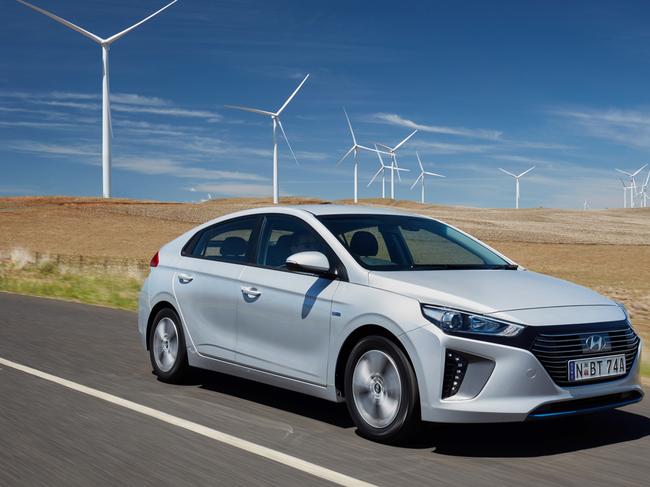
France and Germany offer EV (electric vehicle) subsidies of up to €4000 ($AU6300), while the UK offers up to £3,500 ($AU6400).
Reuters reported on Thursday a bipartisan group of US politicians want to double US tax credits to $7500 ($AU10,470) for people who buy a new EVs from the likes of Tesla.
The success of Tesla in its home state of California can also be attributed to generous subsidies including a further $US4500 ($AU6300) as a state cash rebate and up to $US3000 ($AU4200) from districts.
Other benefits include the use of carpool lanes on busy highways.
Even with subsidies, EVs are likely to remain prohibitively expensive in the near future.
The average price of an electric car in Australia is $143,000, a staggering $100,000 more than the average price of a petrol car.
Even the cheapest electric cars — Hyundai’s $44,990 Ioniq hatch and $59,990 Kona Electric — cost twice as much as conventional petrol models they are based on.
Significantly cheaper models are not likely to arrive until sub-$40,000 models from Kia and VW go on sale closer to 2022.
Electric and plug-in hybrid cars represented 0.2 per cent of Australian new car sales in 2018.
But EV advocates say battery-powered cars will be like digital cameras and flat-screen televisions, becoming common and affordable in short order.
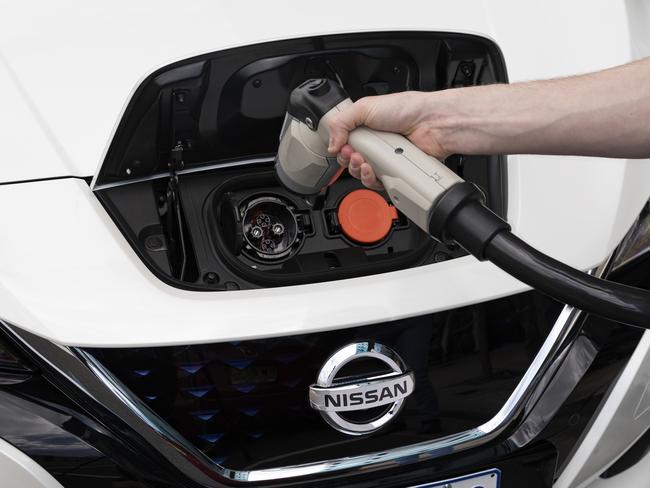
Bloomberg’s New Energy Finance research arm estimates small electric cars will reach price parity with petrol models between 2027 and 2040.
Labor’s Climate Change Action Plan says EVs already make up half of new car sales in “countries such as Norway”, where electric vehicles are exempt from 25 per cent sales tax, have access to bus lanes and are exempt from road tolls.
The Victorian Automobile Chamber of Commerce told a Senate Committee on Electric Vehicles “clean-energy vehicles are not currently attractive enough” to compete without incentives, following a 60 per cent drop in Danish EV sales when subsidies were phased out at the end of 2016.
While Australia does not offer cash incentives, the ACT encourages green buyers with free stamp duty, a 20 per cent registration discount and other benefits including the use of bus lanes.
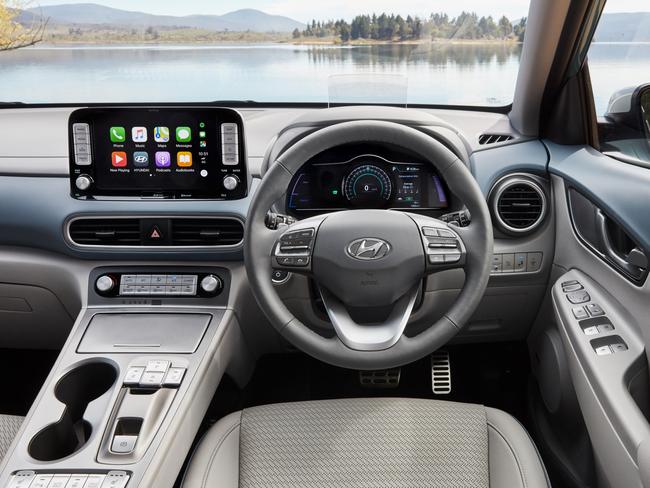
Hyundai EV advocate Scott Nargar said subsided motorway tolls or dedicated lanes would speed up electric vehicle acceptance in Australia.
“I’d pay extra to see my wife and kids sooner instead of sitting in traffic for an extra hour per day,” he said.
Jetcharge chief executive Tim Washington Jetcharge saw his company grow from installing around 250 charging points in 2017 to an expected 5000 this year.
He said the 2030 target is “achievable” without subsidies.
“It’s not necessarily about cash, it’s about creating the environment that allows it to happen,” Mr Washington said.
“I think we can achieve 50 per cent by 2030 with a range of policy measures.”
Electric Vehicle Council chief executive Behyad Jafari agreed the policy is “something that can get the job done”.
Originally published as Labor’s electric car target out of reach

